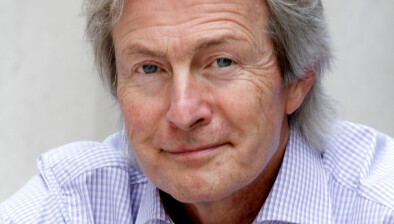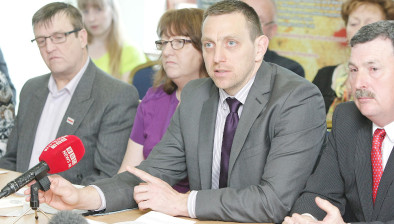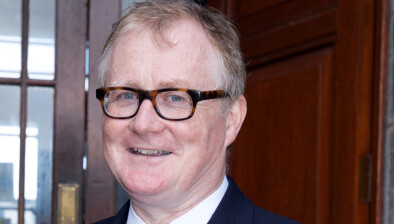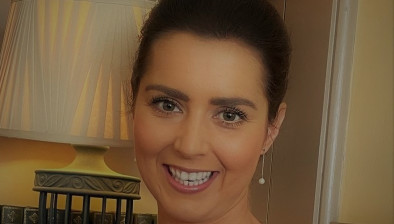Lawyer of the Month: Rose Wall
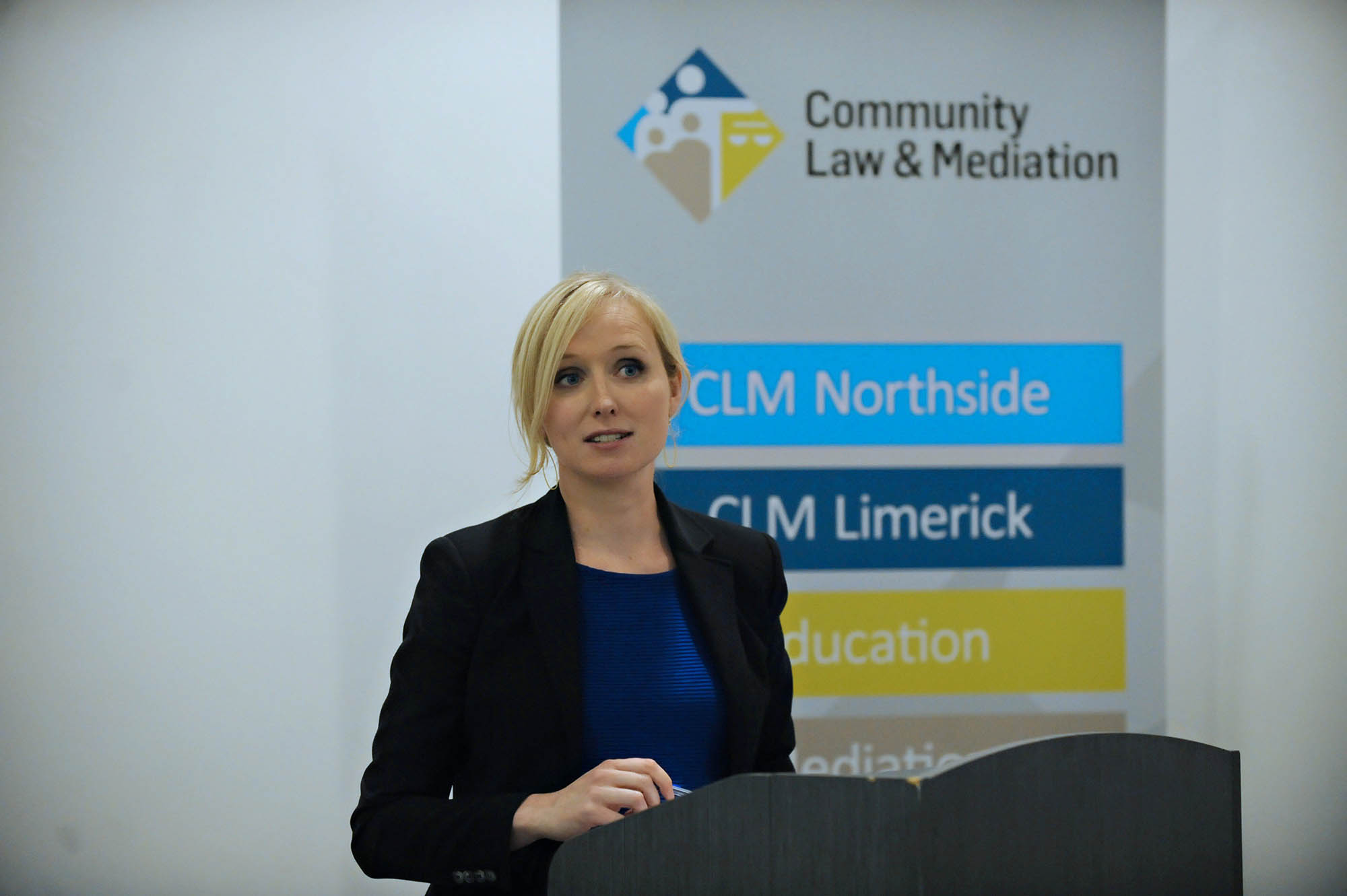
Pictured: Rose Wall, CEO of Community Law & Mediation (CLM) and the Centre for Environmental Justice
The Synthesis Report published three weeks ago by the UN’s Intergovernmental Panel on Climate Change (IPCC) came as no surprise to many — including Dublin lawyer Rose Wall — when it stressed that climate-related impacts are hitting the world much more quickly than previously assessed by the IPCC. Some 40 per cent of the world’s population are now “highly vulnerable” to the impacts of climate change.
For many, the danger is immediately associated with the shrinking of the Greenland ice sheet or the destruction of coral reefs but for Rose, CEO of Community Law & Mediation (CLM) based in Coolock in the city’s Northside, the frightening results of climate change are seen much closer to home.
Two years into Ireland’s first legally binding carbon budget, she points out that the country’s emissions remain among the highest in the EU and that it’s essential that this report is met with action instead of words.
“The report made it clear that climate change exacerbates existing inequalities. Justice must therefore be a core pillar of climate solutions. In parallel with a rapid fossil fuel phase out, Ireland’s National Retrofit Plan must be scaled up to include all social housing and groups most at risk of energy poverty; and the establishment of the long-awaited Just Transition Commission must be accelerated,” she says.
This sense of urgency led CLM, which opened a second law centre in Limerick in 2012, to establish the Centre for Environmental Justice in 2021 to ensure climate change and other environmental harms do not disproportionately affect those who have contributed least to the problem.
“We provide free legal mediation education services to about 4,000 people a year in areas of law that affect those experiencing marginalisation disadvantage — such as homelessness, social welfare, employment equality and children’s rights. The Centre for Environmental Justice is Ireland’s first and only such centre and is now very much integrated into our broader work,” Rose explains.
She holds an LLB and LLM from Trinity College Dublin and, as a member of the Law Society’s human rights and equality committee and with a CV that includes being managing solicitor of the Mercy Law Resource Centre for three years, she’s clearly committed to the ideals of free legal advice and representation and the involvement of everyone in the development, implementation and enforcement of environmental laws, regulations and policies.
“We set the centre up in the realisation that the climate and the environmental crisis is really a human crisis. And it’s one that one that disproportionately affects certain groups, such as women, children, those with disabilities, migrants … people who are often marginalised and have less choice about where they live, fewer resources to deal with the effects of climate change and environmental harm and generally have less of a voice in terms of policy responses so this also involves working in law reform.”
With other pressing problems such as the seemingly ineluctable rising cost of living, it could seem like an uphill climb to engage policy makers and others in environmental matters (while CO2 and methane emissions in Ireland fail to comply with the country’s own Climate Action and Low Carbon Development (Amendment) Act 2021) but Rose is used to the prospect of a cliff edge. “I’ve three children and one rock climbs so when I take him, I join in because I figure that if I share hobbies with them, it’s more time-efficient,” she laughs.
She agrees that climate is justice is often regarded as a ‘global north, global south’ issue. “But our approach to it is to look at it within borders, and within our own country. Issues such as the rising cost of living energy costs and housing all intersect with climate.
“Energy poverty, for example, is inherently linked to housing standards and we need to look at the retrofitting programme being targeted at those such as private tenants, social housing tenants or members of the travelling community to ensure that those most at risk from energy poverty benefit from these climate action measures.
“Climate change is often seen as a threat multiplier but there is actually an opportunity for it to become a justice multiplier so that the response to climate change can tackle other intersectional issues, such as housing standards, poor transport infrastructure, jobs or access to green space and a good quality local environment,” she adds.
“There is potential for climate measures to address these other areas but there’s a bit of work to be done — not just for those communities but indeed for policy makers.”
And that work needs to be undertaken in short order: “We can’t delay. Action must be taken at some stage and if we don’t do it soon, we’ll have to take more drastic measures at a future date.
“The real risk is that the longer we leave it the more that other rights and social justice issues will be impacted. That’s why the implementation of our emissions targets is a core element of climate justice but one in which the Irish government is failing woefully.
“You see it time and time again — for instance in the recent Planning and Development Bill.” This, says Rose, claims in the long-term to help Ireland deliver housing targets and cater for the needs of a rapidly growing population, but in reality will restrict access to the courts at a time when accountability and implementation are increasingly important.
“There have been important cases in the past to hold government and power to account on their climate and environmental obligations so it’s really worrying that they’re taking such action at this time.”
She initially worked as plaintiff litigation solicitor and now as CEO of CLM no longer engages in a huge amount of court work, though in the area of environmental justice there are several cases at pre-litigation and litigation stage in which she is directly involved.
“But generally my job is broader than litigation — I’m responsible for 20 staff and 80 volunteers, keeping the lights on for that while also looking at major strategic objectives such as identifying unmet legal needs, which is why we set up the Centre for Environmental Justice and why we are looking at doing more in the area of children’s rights because we can see a huge need in both these areas. It’s pretty hands on — which suits me frankly, because I quite like rolling my sleeves up and getting stuck in.”
Speaking of children, Rose relies on her own and her husband for relief from being so assiduous in the office. “I’ve taken up the piano in recent years because it’s one of the things that my children do and it can be difficult to squeeze that time in when the job is busy. Having three young boys takes a bit of time — but ultimately, they’re just great fun so it’s all good.”






